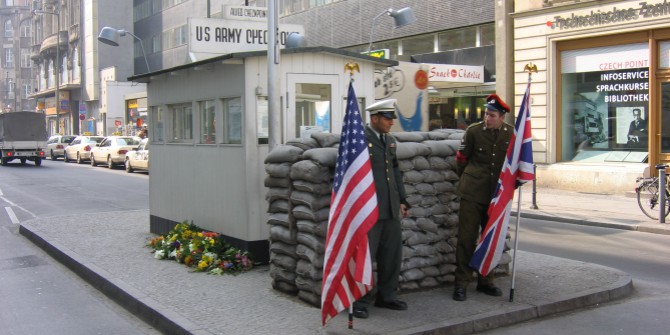
Corporate strategy is rife with imitation, a keeping-up-with-the-Joneses mentality, writ large. Our research suggests that high-level organisational imitation can have more to do with personality than it does with rationality. Specifically, firms are more likely to emulate competitors led by charismatic CEOs and less likely to emulate competitors led by narcissists. This bias toward or against a chief executive’s personality type, our research suggests, can influence strategic decision-making above and beyond the hard data on competitor performance or market opportunity.
Imitation and personality
Management fashions and fads come about as the result of a great deal of benchmarking. It’s easy to spot a corporate imitation at the macro level. Apple introduces its digital virtual assistant, Siri, and soon Amazon follows suit with Alexa, Microsoft unveils Cortana, and Google launches Google Assistant. This suggests that a lot of strategic choices are shots in the dark. So many firms engage in strategy benchmarking. It is the underlying process of social influence or ‘mimicry’ among organisations. And copycatting goes both ways: any given company can be an imitator and a referent at the same time.
And while people might expect that it is the high performing or high-status companies that are most likely to be watched by potential imitators, the research tells us that people often act on their assumptions about psychological characteristics. Specifically, our study finds that organisational decision makers tend to be biased about peer firm CEOs — regardless of whether their internal analysis tells them differently.
Enthralling or egoistic?
We wanted to find out whether the perceived personality of one firm’s CEO can influence the decisions of peer firms to imitate or not. To do so, we examined roughly half the firms in the Fortune 500 during the period from 2001 to 2012, focusing on strategic initiatives in the areas of international diversification, product market diversification and corporate social responsibility. After establishing instances of strategic imitation, we looked at two major leadership types — charismatic and narcissistic — to discern whether personality biases had any influence over a firm’s strategic choices to imitate.
We focused on these leadership traits because popular perception paints charisma as a universally positive leadership trait that is associated with inspiring high performance in an organisation. Narcissism, on the other hand, is widely viewed a negative leadership trait that may hinder performance. These stereotypes are not informed by solid evidence, but rather reflective of cognitive biases.
To measure CEOs’ charisma and narcissism, we asked study participants to watch publicly available interviews of each leader and rate them on the extent to which they exhibit charismatic and narcissistic qualities (as identified by prior research). The raters were trained to look for the behaviours associated with the two traits to ensure that their independent ratings converged to agree upon which CEOs were charismatic and which were narcissistic.
Personality trumps performance
To isolate the effect of personality biases, we controlled for an exhaustive list of other factors: firm prestige, CEO likeability, firm size, return on assets, external environmental factors such as changes in regulations, even coincidental copycatting — anything that might motivate one firm to imitate another or cause two firms to make the same strategic decisions independently.
In this analysis of myriad potential factors driving imitation, the most influential was found to be personality. Companies tended to copy strategic decisions made by charismatic CEOs and steer clear from decisions made by narcissistic CEOs.
We also found that the charisma or narcissism of a referent-firm’s CEO had a greater impact on firms in highly dynamic industries where ambiguous, uncertain and volatile market conditions make it difficult for executives to discern which actions by competitors should be considered effective, important and worthy of their attention and emulation. Firms whose leaders lack prior experience with a type of strategic decision also tend to rely more on competitor CEO personality as a proxy for performance when benchmarking.
Bottom Line
The larger message of this study is that the influence of leaders extends well beyond their direct followers. When considering imitating another firm’s strategic initiatives, key decision makers should take stock of their assumptions — and avoid making decisions based on the personality of another firm’s CEO.
In other words, executives should guard against their own personal biases. They should avoid casting an overly positive light on a rival’s strategy just because its CEO is charming. And they should avoid disregarding a strategy just because it is championed by a self-loving CEO. In every case, they should try to evaluate any strategy on its own merit. It’s always better to look at the numbers.
♣♣♣
Notes:
- This blog post is based on the authors’ paper “Follow the Leader (or Not): How Peer CEOs’ Characteristics Influence Inter-Organizational Imitation”, Strategic Management Journal, May 2018.
- The post gives the views of its author, not the position of LSE Business Review or the London School of Economics.
- Featured image by Andrew Forgrave (edited), under a CC-BY-NC-SA-2.0 licence
- When you leave a comment, you’re agreeing to our Comment Policy.
 Abhinav Gupta is assistant professor of strategic management at the Foster School of Business, University of Washington, Seattle. His current research focuses on the political ideology of corporations and elites, inter-organisational diffusion and social activism.
Abhinav Gupta is assistant professor of strategic management at the Foster School of Business, University of Washington, Seattle. His current research focuses on the political ideology of corporations and elites, inter-organisational diffusion and social activism.
 Vilmos F. Misangyi is professor, BNY Mellon fellow and the department head of management and organisation at Pennsylvania State University’s Smeal College of Business.
Vilmos F. Misangyi is professor, BNY Mellon fellow and the department head of management and organisation at Pennsylvania State University’s Smeal College of Business.





